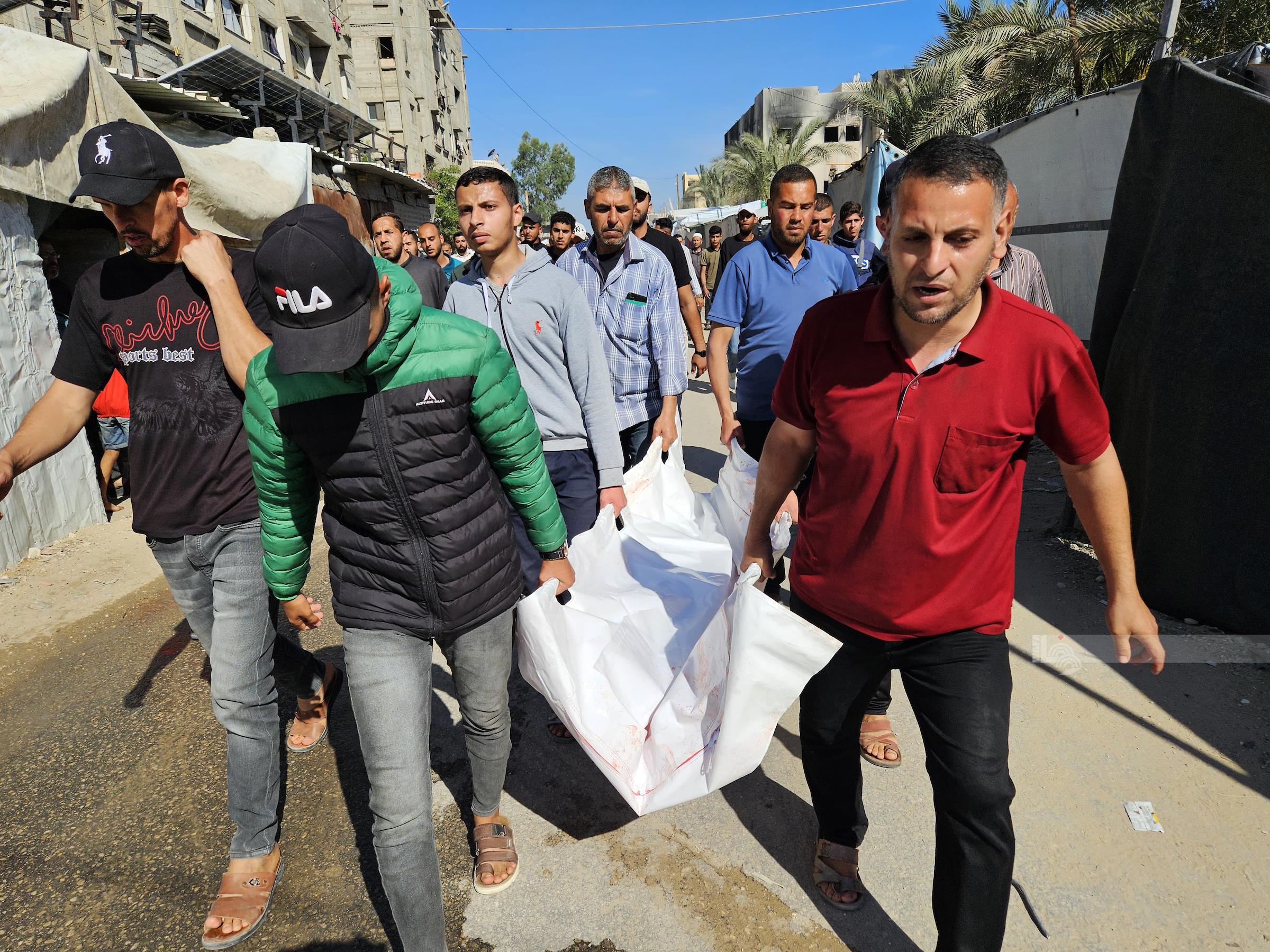JERUSALEM, October 6, 2015 (WAFA) – Israeli
authorities Tuesday demolished – in a punitive measure – the family homes of
three Palestinians and sealed off another with cement in Jerusalem, for their
involvement in attacks against Israelis, according to local sources.
The four homes belong to the families of four
Palestinians killed by Israel after they were believed to be involved in
attacks against Israeli targets.
At midnight, staff from Israeli municipality of West
Jerusalem accompanied by a police force condoned off Jabal al-Mukabir
neighborhood in Jerusalem before detonating and demolishing the homes of
Ghassan and Udai Abu-Jamal, two cousins involved in the attack on a synagogue
in Jerusalem in November 2014.
Forces also demolished the house of Mohammad Ja’abis,
also believed to have been involved in an alleged excavator attack against
Israelis in Jerusalem.
Police also sealed off the house of Muataz Hejazi with
cement blocks. In 2014, Hejazi was shot dead by Israeli forces for being
allegedly involved in an attack against an Israeli far-right rabbi, Yehuda
Glick, in Jerusalem last year.
According to the sources, Israeli Jerusalem mayor, Nir
Barakat, was personally involved in Tuesday’s demolition.
During the Israeli offensive in the area,
confrontations erupted between youths and Israeli police. The latter used
teargas and toxic gas canisters and stun grenades as well as rubber-coated
bullets to disperse the angry youths.
According to the Israeli daily, Haartez, a statement
issued by the Israeli prime minister’s office on Monday stated that, “Prime
Minister Benjamin Netanyahu asked Justice Minister Ayelet Shaked to establish a
mechanism that would significantly shorten the legal process when dealing with
the demolition of terrorist homes.” the Prime Minister's Office said in a
statement late on Monday.
It said that during a cabinet meeting that lasted more
than five hours, Education Minister Bennett demands settlements be built after
every terror attack; Israeli forces demolish two homes of convicted terrorists
and seal off another.
The Palestinian government condemned the demolitions,
and said they were part of a series of violations committed by Israel against
the Palestinian people, in breach of article 53 of the Fourth Geneva
Convention.
Al-Haq human rights group slammed the punitive home
demolition of Palestinians suspected of being involved in attacks against
Israelis, as a collective punishment and that in accordance with humanitarian
law and human rights law, it is assessed as a war crime and a crime against
humanity.
B’Tselem, an Israeli human rights group, says: “The
people who bear the brunt of the [punitive] demolitions are relatives –
including women, the elderly, and children – whom Israel does not suspect of
involvement in any offense.”
“In the vast majority of cases, the person whose
actions prompted the demolition was not even living in the house at the time of
the demolition,” adds the group.
“The official objective of the house demolition policy
is deterrence … yet the deterrent effect of house demolitions has never been
proven.”
It said that, “ Since this constitutes deliberate harm to innocents, it is clear
that even if house demolition had the desired deterrent effect, it would,
nevertheless, remain unlawful.”
In the meantime, Amnesty International, argued that, The
Israeli authorities’ claim that such demolitions are effective in dissuading
potential attackers is entirely irrelevant in the eyes of International
humanitarian law, which places clear limits on the actions which an occupying
power may take in the name of security, and the absolute prohibition on
collective punishment is one of the most important of these rules.
“ Collective punishment is never permissible under any
circumstances,” it said.
The US
department also denounced Israel’s punitive home demolition policy.
The center said that, “From 1967
to 2005 Israel demolished hundreds of Palestinian homes in the occupied
territories as a punitive measure.”
The Israeli
military ended an earlier policy of punitive home demolitions in 1998, but
reinstituted it after the start of the second Palestinian intifada in 2000.
From 2000 to 2005 Israeli forces punitively destroyed more than 650 Palestinian
homes, displacing more than 4,000 people, according to data collected by
B’Tselem.
The military
suspended punitive demolitions in 2005 on the recommendation of a study by a
military committee that found the policy did nothing to deter Palestinian attacks
on Israelis, said Human Rights Watch.
“The 2005
Israeli military report noted that punitive home demolitions increased
hostility toward Israel. Justifying punishment of people who are not
responsible for a criminal act just because they might “support” it would set a
dangerous precedent which could come back to haunt Israelis.”
According to
al-Haq, “The policy was however used in 2009, when the homes of two
Palestinians accused of killing an Israeli soldier were punitively demolished
and sealed in East Jerusalem.”
M.N./T.R.










